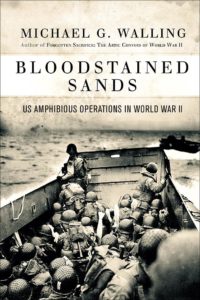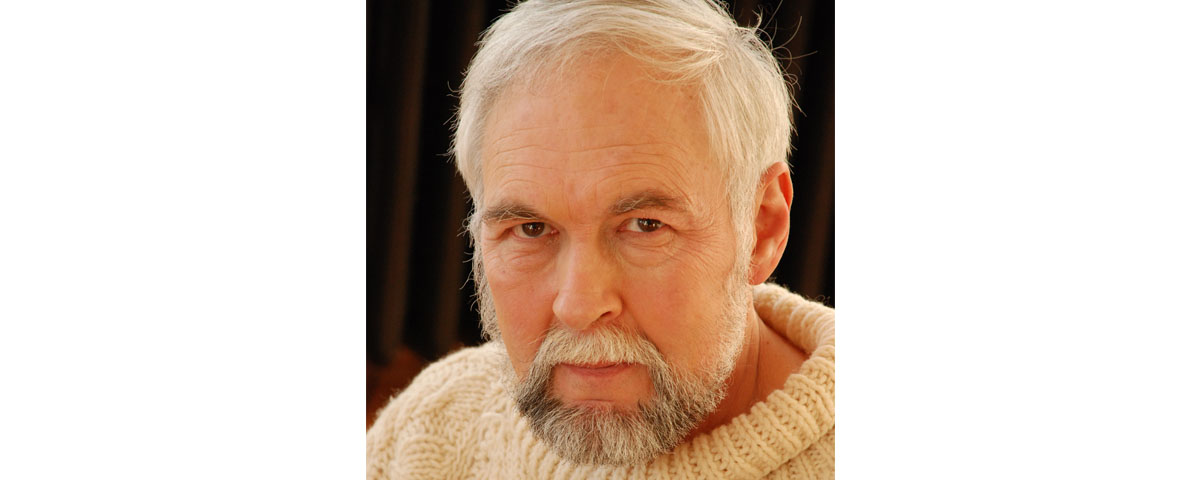MICHAEL G. WALLING, who served in the U.S. Coast Guard for six years as a commissioned officer and a senior petty officer, is the author of several books. His newest book, Bloodstained Sands: U.S. Amphibious Operations in World War II, will be published in April by Osprey. His first book, Bloodstained Sea: The U.S. Coast Guard in the Battle of the Atlantic, 1941–1944, was the winner of the 2005 Samuel Eliot Morison Award for Naval Literature. Walling is a contributing author to the U.S. Naval Institute’s Naval History magazine and has appeared on The History Channel and PBS.
1. How did you become interested in military history?
I don’t ever remember a time when I wasn’t interested in history and, in particular, military history. I watched Victory at Sea at age five when it first came out in 1952–1953 at age five and heard interviews with veterans on NBC’s Today Show. Starting in 8th grade I began reading everything I could find about World War I and World War II. The first combat vets I talked with were my next-door neighbor, who fought in Europe, and my paper route manager, who had been with the Army [Corps of] Engineers in the first wave at Normandy. These men told me the reality of being in combat and not just the funny stories they told to friends and family. These stories made the war become real to me.
 2. What drew you to writing this book?
2. What drew you to writing this book?
It was an offshoot of my first book, Bloodstained Sea. After the Coast Guard phased out of convoy escort duty many of the men were transferred to the Amphibious Forces. This led me to other Coast Guardsmen and their stories. Originally the book was only going to cover the Coast Guard, but I couldn’t do that without adding army, marine, navy, and army air force stories. The project expanded to cover these men. I also realized that no one book covered the broad sweep of amphibious operations in Europe, the Mediterranean, Alaska, Pacific, and the Southwest Pacific. So I decided to try to fill the gap.
3. Has growing up where you did have an effect on your interests or your writing?
Where I grew up was part of the reason. My Dad was from Hudson Falls, New York, an area rich in the history of the French and Indian Wars and the American Revolution. Trips to the Saratoga battlefield, Forts William Henry and Ticonderoga, and Bolton Landing, the home of Rogers’ Rangers, made history very much alive for me. Steve Michaud, my English teacher during my junior and senior years in high school, had the greatest effect on my writing. In his classes we read extensively and had to analyze what we read. This taught me the use of language. My interest in history never wavered; rather, it broadened to include the art, music, literature, politics, and socioeconomics of the 20th century.
4. What kind of research do you do, and how much research do you do before you begin writing?
My first move is outlining the project and creating an accurate timeline of events. From there it’s breaking the project up into chapters of manageable sizes. After that I look for original source material in archives, government publications, and collections of oral histories. Once those steps are complete I start sorting through different accounts to ensure accuracy and look for details in one that are different from others. The research is ongoing. Even as I’m writing a particular chapter I’ll find new information while double-checking what I already have found. Sometimes there is too much information, and then the problem becomes what to include or exclude. This makes the process more dynamic for me.
5. How long did you work on this book?
It started over 13 years ago; however, it was put on hold because at the time I couldn’t find a publisher interested in the subject. I never gave up and often found additional material and stories while working on other projects. Once I had the contract with Osprey Publishing, the research, writing, and editing encompassed about 15 months. The hardest part was hearing and reading the stories of the men who were part of landings and having to limit the number of them for inclusion. There are so many amazing and often heart-wrenching tales, but there just wasn’t room for them all.
6. What’s next for you? What are you working on?
I’m not sure what’s next, though I’ve come up with three possible projects for further research. One is a part of World War II naval history that’s never been completely covered. The second is a story about a U.S. special operative in Europe who wound up fighting with the Russians. The third has to do with an aspect of U.S. State Department operations. If nothing proves to be marketable I may continue to write the series of short action/adventure stories that I began earlier this year. They’re fun to write and less intense than doing a full book. MHQ





